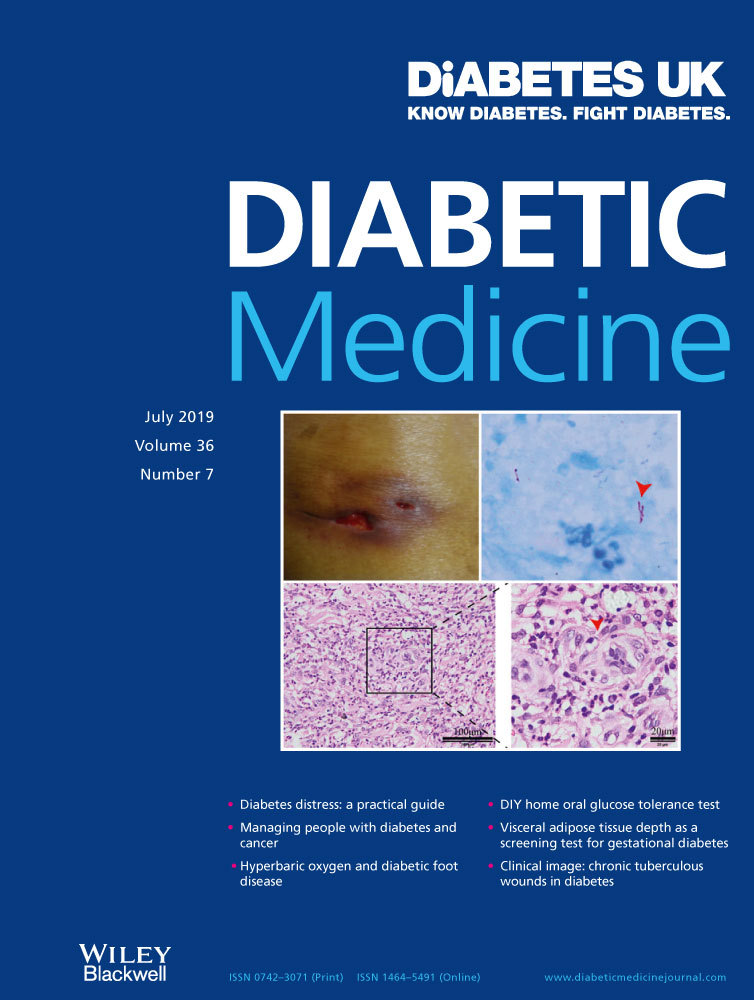Integrating psychosocial support into routine diabetes care: perspectives from participants at the Self-Management Alliance meeting 2016
Abstract
Aims
To identify challenges and solutions to integrating psychosocial support into routine diabetes care from the perspective of stakeholders with expertise in diabetes self-management education and support.
Methods
Ninety-four people attended the annual international Diabetes Self-Management Alliance meeting in 2016, which included plenary sessions and workshops on self-management education, support and prevention. One workshop focused on how to integrate psychosocial support into routine diabetes care; this was run four times consecutively, allowing all conference participants to attend the workshops in groups of 20–25 people.
Results
Challenges and solutions associated with integrating psychosocial support into routine diabetes care concern the patient–provider relationship, the healthcare system and the community. Challenges identified were: lack of time, skills and resources to deal with psychological well-being; a culture of patient blame and care expectations; the complexity of person-centred assessment of psychological issues; and the substantial healthcare system focus on productivity and biomedical indicators. Lack of involvement of local communities and of inclusion of social determinants of health were also highlighted as challenging. Solutions identified were more patient–provider dialogue; more training and better skills among care providers; system incentives for psychosocial outcomes; and targeting social determinants of health and involvement of family and peers.
Conclusions
From the perspective of international stakeholders with an expertise in diabetes self-management and support attending the conference in Denmark, substantial new incentives and systematic cultural changes are needed in healthcare systems to integrate psychosocial support into routine diabetes care, as recommended in international guidelines.




